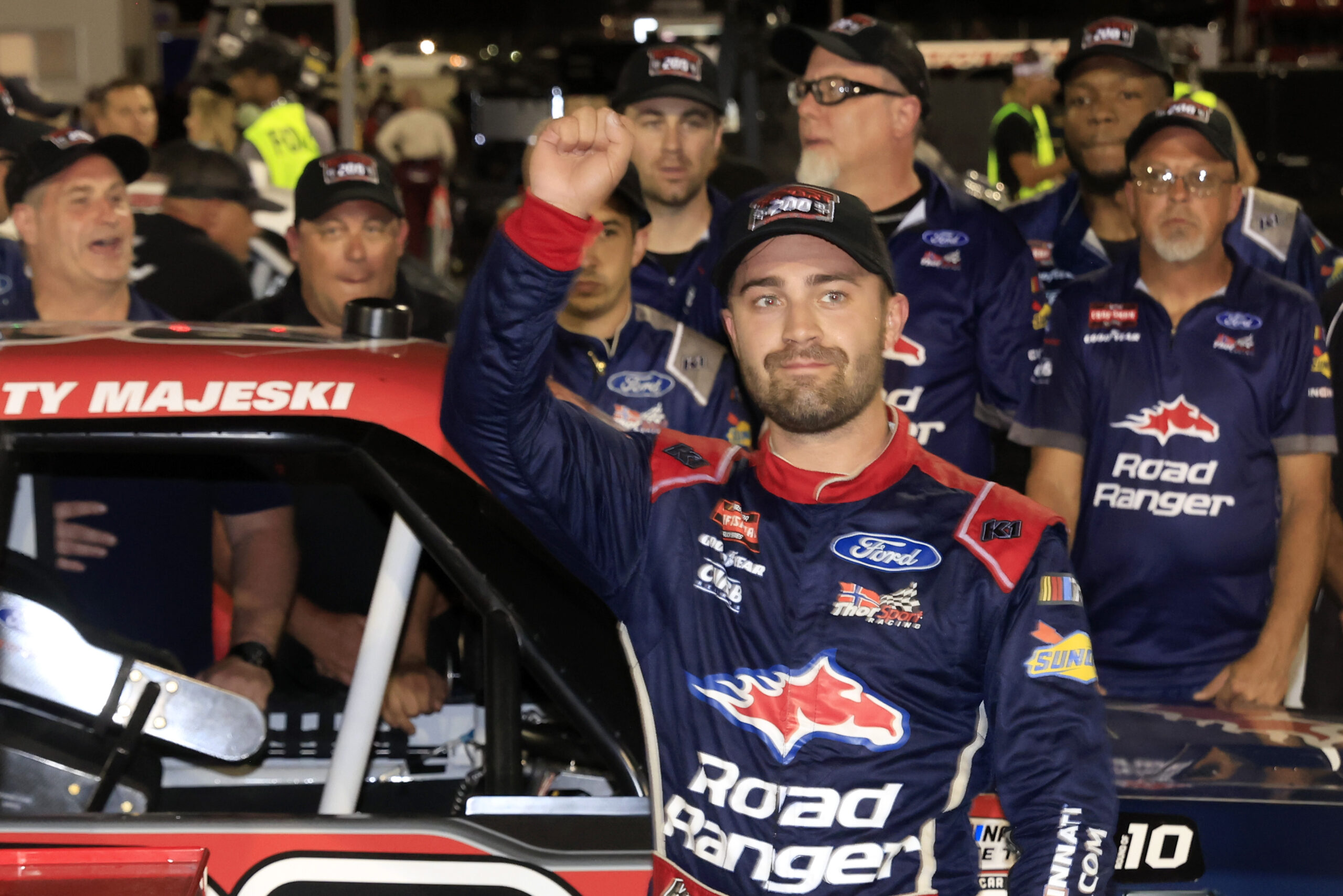
Ty Majeski failed a pre-qualifying inspection on Sunday at Milwaukee as his right-rear tire was confiscated before the race. The penalty was a loss of 75 driver and owner points along with five playoff points, and crew chief Joey Shear Jr. was suspended for the next four races. However, the penalty’s sting was mitigated by the loss of 75 points not carrying over to the next Playoff round, and Majeski still keeping his auto-bid into round two of the Playoffs.
Some people complained on social media about the penalty, saying that it was not severe enough. However, there is a reason why the penalty was gone about the way that it was. Let’s take an honest look at both sides.
Tires are one of the things that teams will be heavily penalized if they mess with them in any way, and NASCAR did penalize them. However, NASCAR was a bit tied up by the infraction that they found. Majeski failed the pre-qualifying inspection at Milwaukee, not the post-race inspection at Indianapolis Raceway Park.
As a result, because NASCAR did not find anything illegal at IRP, it would be incredibly unfair to retroactively penalize a race win that was assumedly legal. There is no proof that the same violation was found on the car in Indianapolis, so why would NASCAR retroactively take away the prize that Majeski won with a legal car?
Yes, it does diminish the sting of the penalty somewhat, but it still forfeits the five Playoff points that Majeski earned for winning at Indianapolis. Losing Playoff points is major, and, with how slim the margins often are at the end of a round, five points can be huge.
Losing his crew chief also can prove to be a major penalty in certain instances. That crew chief will not be able to come back until the season finale at Phoenix Raceway.
What today’s penalty showed to some is that if you win an early race in a Playoff round, there is an incentive to try whatever you can because you will likely not lose your Playoff eligibility. Is losing the crew chief enough when the crew chief can just sit in the war room at the shop?
Sure five Playoff points can be big, but they can also mean nothing. If you are someone like Corey Heim in the Truck Series with 30 Playoff points, those five points do not have the same impact as they do on someone like Ben Rhodes with only 13 Playoff points.
Imagine if the 75-point penalty carried over to the next round. That puts Majeski in a must-win situation in the next round of the Playoffs. Instead, the penalty is highly mitigated because of the points reset following the next race.
How much will teams be willing to risk now that NASCAR has set the precedent of a highly mitigated penalty for something as critical as tires? It could be a dangerous slope, especially considering how well he reportedly was running.
"[Majeski] was the best truck all day in practice and [NASCAR] took it away, all of a sudden… I never saw him all day"
— Frontstretch (@Frontstretch) August 27, 2023
Carson Hocevar with some pointed words to @RealJaredHaas about Ty Majeski after the 98 was penalized by NASCAR before the race. pic.twitter.com/4NfRlauAAU
Why not allow those 75 points to be carried over to the next round, or maybe increase the Playoff points penalty for Playoff drivers at this point in the season? That may deter teams from trying things like this again.
All in all, this is a complicated situation, and NASCAR has to find the right balance between penalizing the driver while also not taking away something they rightfully earned. It is tough, and there probably could be a better way to penalize infractions like this at such a critical point in the season. However, it is tough.
